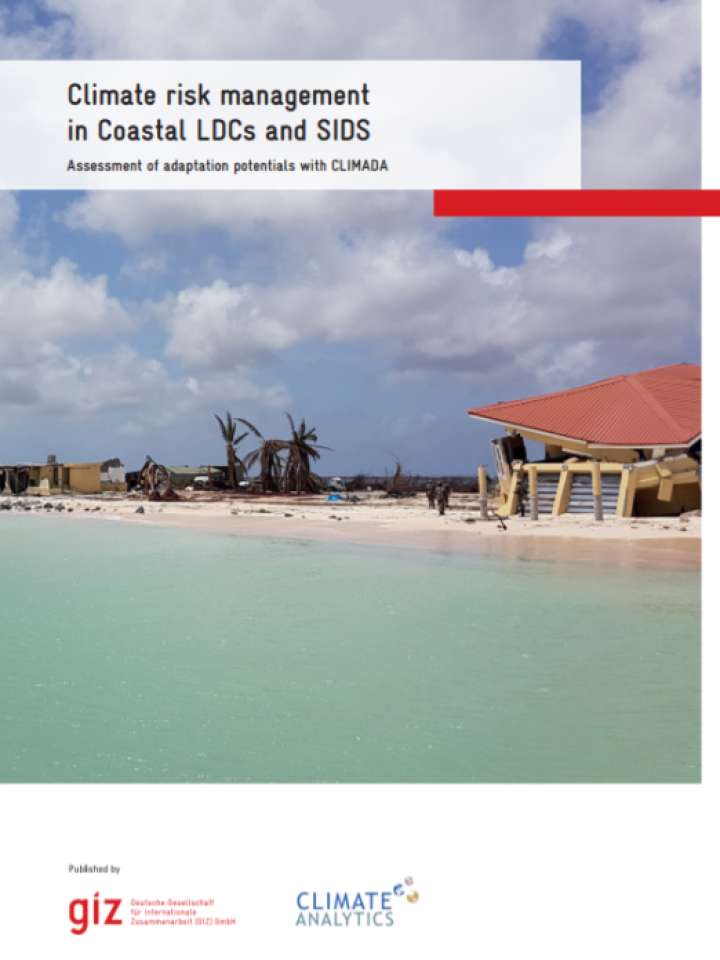Climate risk management in coastal LDCs and SIDS: Assessment of adaptation potentials with CLIMADA
This study offers insights into coastal risks in the Caribbean and identifies trends of adaptation options and their effectiveness to reduce economic damages. The study region of the Caribbean is extensively exposed to disasters caused by natural events. Especially, increasing tropical cyclone intensities pose a key coastal and ocean risk to Caribbean Least Developed Countries (LDCs) or Small Island Developing States (SIDS). These countries are experiencing negative impacts from climate change, including sea level rise (SLR), land erosion, changes in the global water cycle, and increased storm intensity already today; capacities to holistically manage risks and to avert, minimise, and address losses and damages lack. Decision-making is not only challenging because of lacking resources but also due to uncertainties. The CLIMADA modelling and analysis tool provides information for Comprehensive and Climate Risk Management and allows for the assessment of potentials of selected adaptation measures beyond the assessment of risks from climate change.
This study finds that the effectiveness of adaptation options is strongly determined by the level of climate change: as the analysis outlines, even under modelled assumptions of full and functional implementation of measures, for this region and based on the available information residual risks remain for the majority of assessed locations and options. Ecosystem services such as coastal protection can be cost-effective measures, but are increasingly constrained due to their biophysical limits and loss from climate change. While risk transfer provides an important contribution to support affected regions on coping with damages, they do not avert the damages as such, which can lead to very long recovery times, affecting economic growth on the long term. Overall, it can be emphasised that the combination of measures seems to offer flexibility and potential to more effectively avert, minimise, and address losses and damages from climate change.
Explore further
